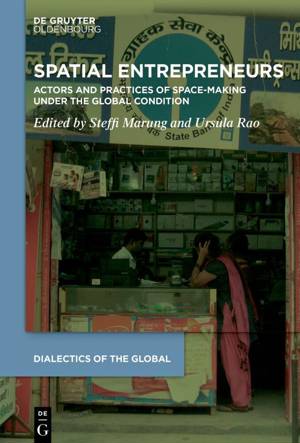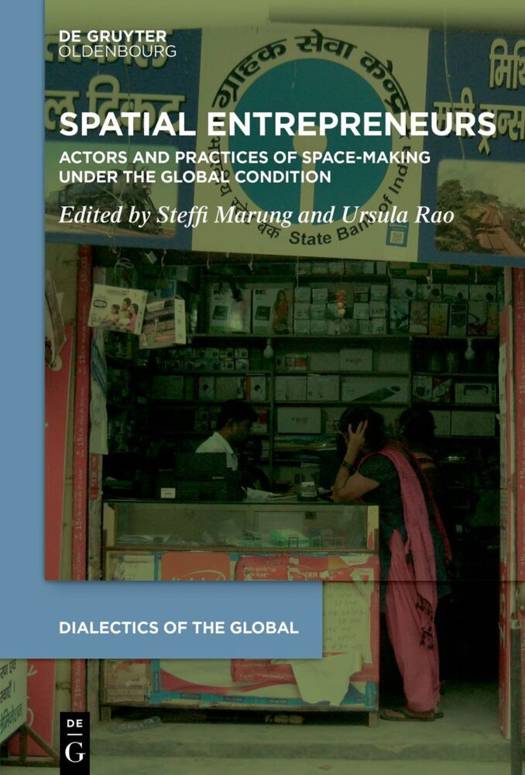
Bedankt voor het vertrouwen het afgelopen jaar! Om jou te bedanken bieden we GRATIS verzending (in België) aan op alles gedurende de hele maand januari.
- Afhalen na 1 uur in een winkel met voorraad
- In januari gratis thuislevering in België
- Ruim aanbod met 7 miljoen producten
Bedankt voor het vertrouwen het afgelopen jaar! Om jou te bedanken bieden we GRATIS verzending (in België) aan op alles gedurende de hele maand januari.
- Afhalen na 1 uur in een winkel met voorraad
- In januari gratis thuislevering in België
- Ruim aanbod met 7 miljoen producten
Zoeken
Spatial Entrepreneurs
Actors and Practices of Space-Making Under the Global Condition
€ 148,45
+ 296 punten
Omschrijving
As essential components of globalization, the study of practices and processes of space formation promotes a nuanced understanding of globalization. How do people create spaces for social action under the global condition, especially since the nineteenth century, when global interconnectedness increased rapidly? We explore the problem through specific case studies. Anthropologists, historians, geographers, sociologists, global studies scholars, and cultural studies scholars examine the agency of, e.g., members and staff of African regional organizations, Indian migrant workers, female GDR activists, Soviet planning experts, or US novelists. By studying elites as well as middle-class and micro-entrepreneurs - i.e. more and less influential actors - we encourage reflection on the relationship between power and space and examine how spatial entrepreneurs attempt to influence the shaping of space and their spatial literacy. The analysis aims at a better understanding of the different globalization projects, their crisis-like clashes, and the resulting conflictual development of spatial orders. Steffi Marung is Director of the Global and European Studies Institute at Leipzig University. Her work includes global histories of socialism in the twentieth century and East-South-connections during the Cold War and their legacies. Ursula Rao is Director of the Department "Anthropology of Politics and Governance" at the Max Planck Institute for Social Anthropology in Halle (Saale). Her research focuses on issues of politics and governance in India, with a particular focus on the consequences of rapid digitization.
Specificaties
Betrokkenen
- Uitgeverij:
Inhoud
- Aantal bladzijden:
- 205
- Taal:
- Engels
- Reeks:
- Reeksnummer:
- nr. 7
Eigenschappen
- Productcode (EAN):
- 9783110639674
- Verschijningsdatum:
- 24/07/2023
- Uitvoering:
- Hardcover
- Formaat:
- Genaaid
- Afmetingen:
- 156 mm x 234 mm
- Gewicht:
- 467 g

Alleen bij Standaard Boekhandel
+ 296 punten op je klantenkaart van Standaard Boekhandel
Beoordelingen
We publiceren alleen reviews die voldoen aan de voorwaarden voor reviews. Bekijk onze voorwaarden voor reviews.








